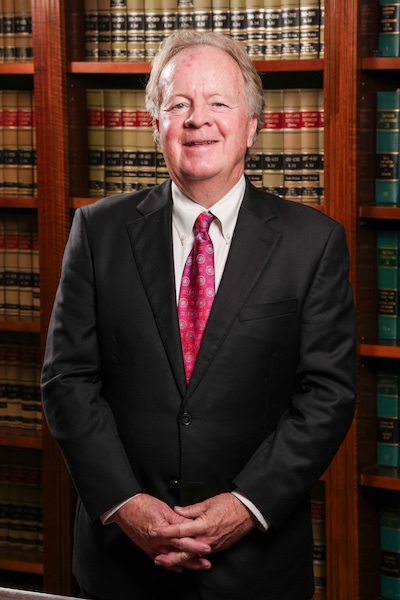At Clark and Steinhorn, LLC we are seeing more and more Maryland and D.C. auto and truck accident cases involving ride-sharing services such as Lyft and Uber. This in turn has led to a lot of research on this topic and we've reached some interesting conclusions.
These conclusions are in part based on the facts as presented to us by clients who were injured while driving for Uber and Lyft. The most basic problems involve the interplay between the insurance maintained by ride-sharing drivers when using their vehicles for personal use and the "insurance" in place while driving for Lyft or Uber.
The fact is that one's personal insurance doesn't cover ride-sharing activities. The ride-sharing overlords, out of concern for their financial bottom lines have put in place an odd system for their drivers while working. If a ride-sharing driver is using the "app" and is en route to a pickup, the Uber of Lyft policy covers $50,000.00 worth of an individual injury claim. However, drivers who have passengers magically have $1,000,000.00 in coverage.
This distinction is doubtless to encourage ride-sharing passengers to have confidence that they are adequately covered while riding in an Uber or Lyft drivers vehicle. The problem exists however for people struck by ride-sharing drivers rather than their passengers.
For example a client of our firm was catastrophically injured by a ride-sharing driver. If that driver had no passenger our client would have only been able to collect $50,000.00 but fortunately there were passengers and the $1,000,000.00 policy was available. This illustrates the problem, the ride sharing driver was unquestionably in the course of his employment and yet the extent of his insurance when he injured someone was determined by chance.
It is our position that ride-sharing drivers should all have $1,000,000.00 in coverage while they are working whether or not they have passengers. There is no evidence to suggest that negligent ride-sharing drivers cause less injury when they don't have passengers. It is merely a cost cutting policy by Uber and Lyft which does nothing to protect the public.
Ride-sharing services contend that their drivers are not "employees" and thus if they cause a major injury while working for their "App Employers" are not responsible for their negligent acts. Yet, many aspects of ride-sharing employment would meet the legal definition of an employee-employer relationship.
This is important. If you were hit by a Coca-Cola truck driver, Coca-Cola would be on the hook for the full value of your injuries even if that amounts to millions of dollars. Both Lyft and Uber are worth billions of dollars and they want to insulate their potential monetary exposure for the negligent acts of their drivers thus they create the illusion that their drivers are not "employees".
Various jurisdictions have grappled with the issue of who is and isn't an employee. Maryland hasn't yet decided this question but it is inevitable that a decision will be forthcoming in the future. All the courts will need is a situation where someone is badly injured and the ride-sharing companies try and argue that the $50,000.00 policy applies and not the $1,000,000.00 and the die will be cast.
A second enormously problematic situation confronted by several of our clients is where they are driving for one of the companies and are injured by another vehicle. Ordinarily their personal insurance would provide them personal injury protection benefits, for which they have paid a premium but since they are "working" for Uber or Lyft their personal policy doesn't apply and they lose out on an important benefit.
A second issue is that if they cause a major accident and are working but without passengers, their available insurance may be only $50,000.00 per injured person, which could mean a substantial personal liability for them. Perhaps, they could purchase an umbrella policy or a commercial rider to cover the difference between what the ride-sharing companies provide and the actual value of the injuries but who thinks of such things other than lawyers.
The bottom line, many insurance issues lie ahead with regard to car and truck crashes involving ride-sharing services.

